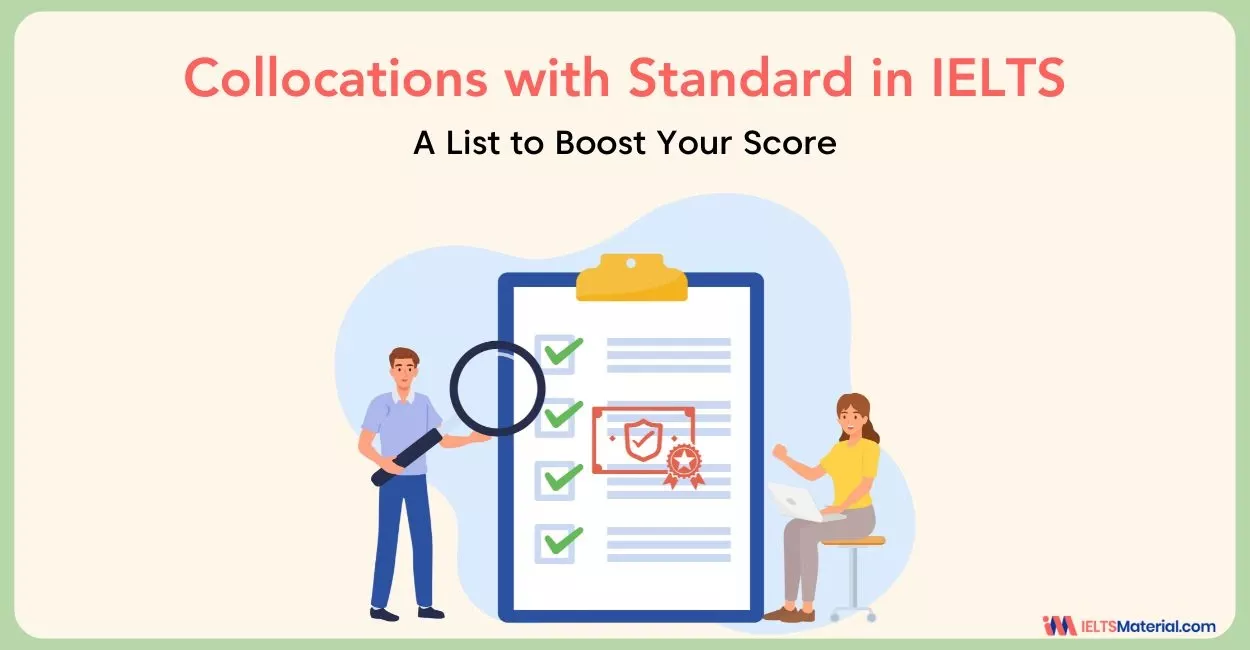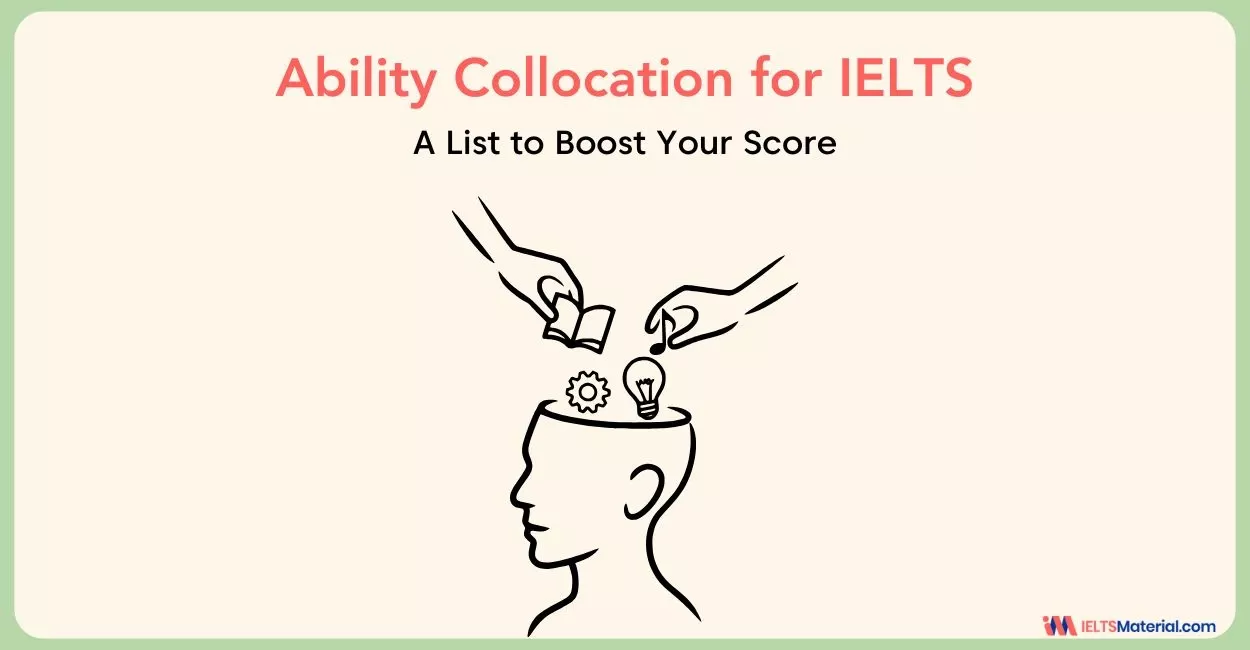Judgement Collocation for IELTS: A List to Boost Your Score
7 min read
Updated On
-
Copy link
Master judgement collocations to elevate your IELTS performance! Learn precise meanings, check practical examples, and try vocabulary-building activities to refine your writing, enrich your speech, and move closer to your dream IELTS band score.
Table of Contents

Limited-Time Offer : Access a FREE 10-Day IELTS Study Plan!
While many test-takers focus on learning advanced vocabulary, few realize how important judgement collocations are for expressing opinions, analysing situations, or describing choices. They are powerful academic nouns that can instantly elevate your lexical range when used naturally in essays, reports, or discussions.
This blog will help you understand, remember, and use judgement collocations effectively through meaning, applications, and practice exercises to enrich your IELTS vocabulary.
Lists of Judgement Collocations for IELTS to Boost Your Score
Judgement collocations for IELTS are useful for discussion and IELTS opinion essays, especially on ethics, leadership, or decision-making, enhancing coherence and accuracy in Speaking Part 3 answers and showing the examiner you can use natural word partnerships, not just memorized vocabulary.
Therefore, we will explore lists of the top important collocations for IELTS related to judgement in the tables below.
Judgement (Making Decisions) Collocations
These collocations describe how people make or use their sense of judgement when evaluating a situation or decision. They are common in formal and semi-formal IELTS contexts.
|
Collocation |
Meaning |
Example Sentence |
|---|---|---|
|
Trust/rely on/depend on someone’s judgement |
to believe someone can make good decisions |
I completely rely on my teacher’s judgement when choosing study materials. |
|
Showed/exercised/used good judgement |
to act wisely or make sensible decisions |
The manager exercised good judgement in handling the crisis calmly. |
|
Challenged/doubted/questioned someone’s judgement |
to disagree with or criticize a person’s decision |
Some students questioned the examiner’s judgement after the results were released. |
|
Use/rely on/exercise your own judgement |
to make independent decisions |
In the IELTS Speaking test, candidates must exercise their own judgement when answering opinion questions. |
|
Form/come to a judgement |
to reach a decision after considering information |
After analysing the data, I came to the judgement that the policy was effective. |
|
Make a sound/fair/balanced judgement |
to make a reasonable or just decision |
Judges are expected to make a fair judgement based on evidence. |
|
Poor/bad/wrong judgement |
to make a mistake in decision-making |
His decision to ignore expert advice was a clear case of poor judgement. |
Verb + Judgement Collocations
These combinations show how verbs interact with ‘judgement’ to express evaluation, reaction, or interpretation, crucial in analytical writing and Part 3 discussions.
|
Verb + Judgement |
Meaning |
Example Sentence |
|---|---|---|
|
Exercise judgement |
to apply reasoning or discretion |
Teachers must exercise judgement when grading essays fairly. |
|
Demonstrate judgement |
to show reasoning ability |
The candidate demonstrated good judgement in managing time effectively. |
|
Question judgement |
to express doubt about someone’s decision |
The public questioned the government’s judgement on the new policy. |
|
Base judgement on |
to rely on evidence or criteria |
My judgement is based on facts rather than emotions. |
|
Pass judgement on |
to criticize or make a moral decision about someone |
It’s unfair to pass judgement on others without understanding their situation. |
|
Value someone’s judgement |
to appreciate or respect their decision-making ability |
I’ve always valued my mentor’s professional judgement. |
|
Influence judgement |
to affect how someone decides or perceives something |
Personal bias can influence a person’s judgement in an argument. |
Useful Expressions with ‘Judgement’
These fixed expressions are commonly used in spoken and written English to express opinions or describe how people make decisions.
|
Expression |
Meaning |
Example Sentence |
|---|---|---|
|
In my judgement |
In my opinion |
In my judgement, strict discipline helps improve academic performance. |
|
Against my better judgement |
Doing something despite believing it’s wrong |
Against my better judgement, I agreed to join the risky business venture. |
|
A distinct lack of judgement |
Poor decision-making or lack of wisdom |
The politician showed a distinct lack of judgement by making insensitive remarks. |
|
An error of judgement |
A mistake in decision-making |
The company’s investment in that project proved to be a major error of judgement. |
|
Show good judgement |
To make a wise choice |
Students who plan their study schedule show good judgement. |
|
A lapse in judgement |
A temporary failure to make good decisions |
His comment during the meeting was a brief lapse in judgement. |
|
Sound judgement |
Reliable and reasonable decision-making |
Sound judgement is essential for success in leadership roles. |
Other Important Judgement Collocations
These judgement collocations enrich your academic writing and show topic flexibility, especially for essays related to ethics, law, or technology.
|
Collocation |
Meaning |
Example Sentence |
|---|---|---|
|
Moral judgement |
evaluation of what is right or wrong |
Children develop moral judgement as they grow older. |
|
Personal judgement |
individual opinion |
Your personal judgement can differ from professional advice. |
|
Legal judgement |
decision made by a court |
The legal judgement favoured the company in the dispute. |
|
Professional judgement |
expertise-based decision-making |
Doctors must use professional judgement when treating patients. |
|
Human judgement |
decisions made based on reasoning and emotions |
Artificial intelligence cannot fully replace human judgement. |
Notes
|
Judgement Collocation for IELTS: Practice Exercises
The following exercises are designed to help you with your understanding and use of judgement collocations for IELTS, and you will be able to complete these exercises.
Exercise A: Which set of verbs fit best in the sentences?
a trust / rely on / depend on
b showed / exercised / used
c challenged / doubted / questioned
d use / rely on / exercise
e form / come to
- I’m afraid whether to marry Sandra or not is not something I can give you advice on. You’ll have to ___________ your own judgement.
- I think recent events have called into question the director’s judgement. = > Be careful. No one has ever ___________ his judgement before.
- What do you think we should do about this money that’s missing from the accounts? I’m finding it hard to___________ a judgement on what course of action to take.
- I ___________ my wife’s judgement on financial matters. She’s got a degree in economics.
- The speaker ___________ good judgement in his choice of words when that guy asked all those difficult questions.
Exercise B: Complete the sentences below with the more natural collocation.
- Until I’ve heard your brother’s side of the story, I think I’m going to ___________ judgement. (keep / reserve)
- What do you think of our new headmaster? > It’s still too early to ___________ a judgement but so far he seems OK. (form / make)
- Mike’s appalling behaviour at the meeting just ___________ my earlier judgement of him. He’s the rudest person I’ve ever met. (confused / confirmed)
- Who are you to___________ judgement on my behaviour? Just remember you’re no saint yourself! (make / pass)
- I think I’ll___________ your judgement when it comes to deciding which wine to order. You know a lot more about it than me. (trust / believe)
- When it comes to trusting people, ___________ your own judgement. Don’t listen to what other people think.(depend on / rely on)
Exercise C: Complete the sentences with the following expressions. Then underline other useful collocations in this exercise.
|
in my judgement against my better judgement a distinct lack of judgement an error of judgement |
- As a very experienced politician, the Minister should never have allowed the Sultan to pay for his hotel accommodation. He showed ___________ .
- ___________ , we should not have accepted Jim’s resignation. He was too valuable a person to lose.
- I went to the party ___________ . I should have stayed at home and tried to get rid of this cold.
- To say that you were guilty of ___________ when you spoke to the press about the disagreements at the meeting is the under-statement of the year. I think you’ll soon be looking for a new job.
Explore our Vocabulary for IELTS to boost your IELTS vocabulary!
Judgement Collocations Answer Keys for Practice Exercises
Ex A: l-d 2-c 3-e 4-a 5-b
Ex B: 1. reserve 2. form 3. confirmed 4. pass 5. trust 6.rely on
Ex C:
- a distinct lack of judgement
- In my judgement
- against my better judgement
- an error of judgement
To conclude, understanding and using judgement collocations can make your IELTS responses more precise, mature, and academically natural. Whether you are writing an essay about moral decisions or discussing leadership in the IELTS Speaking test, these expressions demonstrate an advanced grasp of English phrasing, key to achieving Band 8+ in Lexical Resource.
Useful Links:

Start Preparing for IELTS: Get Your 10-Day Study Plan Today!
Learn more Collocations

Kasturika Samanta

Nehasri Ravishenbagam

Kasturika Samanta

Kasturika Samanta
Recent Articles

Nitika Gupt

Nehasri Ravishenbagam

Nehasri Ravishenbagam





Post your Comments